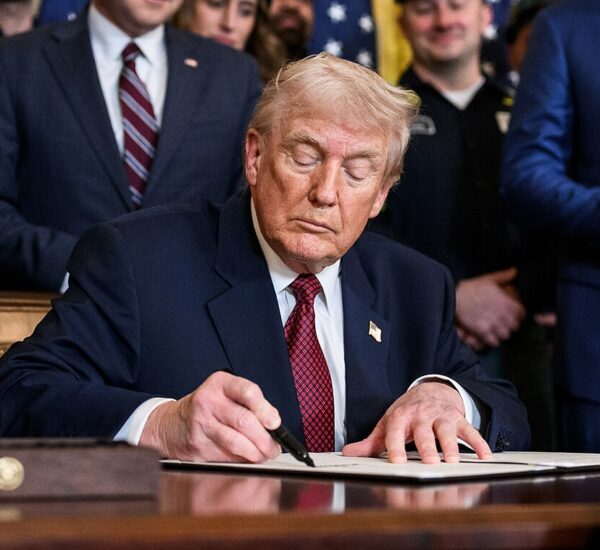Trump Team Announces ‘Southern Spear’
Secretary of War Pete Hegseth is launching a major expansion of the Pentagon’s counterdrug mission in the Western Hemisphere. The new phase of Operation Southern Spear marks one of the most aggressive efforts in years to combat the deadly drug pipelines fueling America’s overdose crisis.
The enhanced mission uses advanced robotic and autonomous technology to stop cartel activity long before it reaches America’s borders. For millions of families concerned about safety, border security, and national sovereignty, this move signals a major turning point.
A Direct Response to the Drug Crisis Harming American Families
Hegseth announced the expanded operation on X, warning that cartels and narco-terrorist groups pose a clear threat to the homeland.
“This mission defends our Homeland, removes narco-terrorists from our Hemisphere, and protects our people from the drugs that are killing Americans,” Hegseth said.
“The Western Hemisphere is America’s neighborhood — and we will protect it.”
His message resonates strongly with Americans frustrated after years of weak border enforcement and rising drug deaths.
America Takes the Lead in Regional Security
The operation also strengthens cooperation with regional allies dealing with similar threats. Countries like Colombia, Panama, and Ecuador have backed stronger maritime security and expanded monitoring of drug-trafficking routes.
Officials describe Operation Southern Spear as a long-term, strategic counterdrug effort designed to tighten control over major sea corridors used by transnational criminal networks.
Robotic Warships and Air Vehicles Join the Fight
The expanded mission brings new, cutting-edge unmanned technology into real-world operations, including:
- Long-endurance unmanned surface vessels
- Small robotic interceptor boats
- Vertical-takeoff unmanned aircraft
These systems will operate alongside Coast Guard cutters, Navy ships, and Joint Interagency Task Force South.
According to Cmdr. Foster Edwards of the 4th Fleet, this shift represents a move from small experiments to full-scale, long-duration deployments. Data from this phase will help determine the best mix of manned and unmanned assets needed for sustained border security and maritime surveillance.
Strengthening U.S. Sovereignty and National Defense
The U.S. Navy says Operation Southern Spear supports the broader Project 33 initiative, which focuses on integrating robotic and autonomous systems across the fleet. Expanding unmanned coverage in critical shipping lanes is expected to:
- Improve real-time decision-making
- Strengthen national sovereignty
- Increase operational reach
- Limit cartel movement across key maritime routes
For border-security advocates, this aligns with longtime calls for more aggressive, technology-driven enforcement.
A New Era of Homeland Defense
Rear Adm. Carlos Sardiello, Commander of U.S. Naval Forces Southern Command, said the mission is a significant milestone for the Hybrid Fleet Campaign. He emphasized Southern Spear will enhance cooperation with regional partners while modernizing Navy tactics and capabilities.
Officials with the U.S. 4th Fleet describe the command as the trusted maritime partner for Caribbean, Central American, and South American forces. They say stronger cooperation is essential for long-term stability and for protecting American families from the devastating impact of cartel operations.






